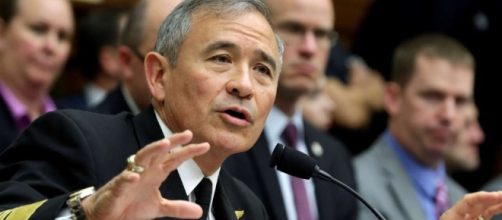The United States may have to strengthen its missile defense, especially in Hawaii, due to the growing threat of North Korean nuclear missile and missile program, the supreme commander of US forces in the Pacific said on Wednesday.
Just hours before the US Senate in the White House became a familiar with the situation in North Korea, admiral Harry Harris testified about what he believes is a threat that the US needs to take seriously.
Harris believes that defense in Hawaii is still adequate, but one day it may be overwhelming and he suggested setting up a new radar on the island as well as a projectile interceptor system.
"I do not share your confidence that North Korea will not attack South Korea, Japan or the United States... When it becomes capable," Harris said.
His testimony is the latest wake-up call to Washington's growing concern over North Korean nuclear capabilities. President Donald Trump has shown the will to take advantage of force if he breaks diplomatic paths in negotiations with Pyongyang.
US officials warn that the conflict with North Korea would have catastrophic consequences on the South Korean allies. Pyongyang increased this concern after major exercises on Tuesday marked the anniversary of the founding of the army.
Trump invited all the members of the Senate to a White House meeting, including Secretary of State Rex Tillerson, Defense Minister Jim Mattis, US Naval Officer Dan Coats and Navy General Joseph Dunford, Chief of the United Armed Forces Chief of Staff.
Those four officials will then go to Capitol Hill where they will report to the entire House of Representatives about their findings.
THAAD will be ready in several days
Harris also said that the advanced system against the ballistic missiles THAAD set up in South Korea will be upgraded in the coming days, which will boost the country's defense capacity as well as the protection of 28,000 US troops in it.
The US military began deploying this system on Wednesday in South Korea, prompting protests from local residents and criticisms from China. Beijing claims that an advanced radar of that system captures much of its territory, undermining China's security. Harris dismissed these claims, pointing out that it is "meaningless" that Beijing is trying to answer for Seoul from the system that will defend it.
He stressed that Beijing should work harder to affect North Korea, although it praised the signals from China that show that it would act toward Pyongyang. "I am encouraged and I believe that Kim Jong-Un realized that something had changed in relation to China and I think that is important," said the commander.
The United States are ready for North Korean attacks
Although Harris expressed concern over the future military capabilities of Pyongyang, he calmed some fears about the current dangers for the US forces in the Pacific. He expressed the assurance that the US could refuse any North Korean attack on the aircraft carrier. "Weapons used by North Korea to attack the fleet, Carl Vinson, are easily defeated by the weapons owned by that combat group," the commander concluded.

